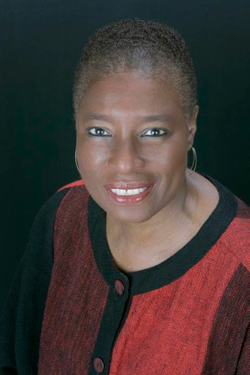“What those demonstrations, what the movement and civil and human rights in relationship to black people was all about, was nothing really easy or simple,” said Hortense Spillers, Vanderbilt Professor of English. “It was dangerous and threatening work. I think going to jail simply said to me that I was pretty vulnerable, that I could be hurt.”
Spillers was arrested for attempting to desegregate a restaurant in Memphis, TN while she was a student at the University of Memphis. This experience drove Spillers’ current studies in black feminism and culture.
It was a dangerous place to be in school if you were a black kid between 1962 and 1966. It wasn’t the fun place to be.
This June, Spillers will be honored by the Caribbean Philosophical Association with the Nicolás Guillén Lifetime Achievement Award for her writing in philosophical literary theory and black culture. The award is named after Cuban poet and activist Nicolás Guillén.
Spillers’ interest in writing is rooted in her childhood–she was raised in a strong oral tradition of black preaching and speechmaking.
“I was always captivated by great speechmaking,” Spillers said. “Beautiful speechmaking, beautiful sermons, beautiful addresses… I grew up listening to that kind of thing, and so my love of language really started there.”
Spillers attended Bennett College, a historically black college for women in Greensboro, NC, for her first two years of undergraduate. Although she was impressed by her classmates and the faculty, she disliked Bennett’s strict curfews and rules, and she decided to transfer to the University of Memphis after her sophomore year.
“At the time, the University of Memphis was going through really radical changes,” Spillers said. “I was there in the early sixties, among the first black students to attend the University of Memphis… It was a dangerous place to be in school if you were a black kid between 1962 and 1966. It wasn’t the fun place to be.”
Black students didn’t attend the University of Memphis until the 1960s, when courts ordered the university to open its classes to black students.
If you’re going to live this life in a way that is not shallow, you’re going to have to sometimes do things that are unpopular.
“It’s a state university, run by the state of Tennessee, but it was operating according to the color code that really directed southern society at that time,” Spillers said.
It was during her time as a student at the University of Memphis that Spillers was arrested for attempting to desegregate a restaurant that refused to serve black customers. Along with students from Southwestern at Memphis, now Rhodes College, Spillers and her classmates launched a series of demonstrations at the restaurant, which was near the University of Memphis’ campus.
“The custom in those days around demonstrations was to close the restaurant immediately when protesters came in, and in this case we were male and female, black and white,” Spillers said. “This afternoon though, we took seats (at the lunch counter), and the police were called and we were arrested.”
This experience helped Spillers to realize the gravity of what she faced.
“It has made me understand that if you’re going to live this life in a way that is not shallow, you’re going to have to sometimes do things that are unpopular. Things that may be dangerous, and may get you in trouble, and may in fact hurt you,” Spillers said.
After graduating from the University of Memphis with a Bachelor of Arts in English, Spillers taught at Kentucky State University for several years. She then decided to attend Brandeis University to receive her PhD in English.
Spillers has continued teaching her whole life at a variety of universities, including the University of Nebraska-Lincoln, Haverford College and Cornell University.
Spillers enjoys teaching because it is a way of connecting people.
“It’s a conversation with smart people whose interests overlap your own, so it is a way of testing your knowledge, learning more, sharing what you know. It’s a way of belonging, it’s a way of being,” Spillers said.
While Spillers was teaching at Cornell, a colleague recruited her to teach at Vanderbilt. Spillers accepted the position in order to be closer to her mother, who was in her nineties at the time.
“I had lost a lot of family, so after nearly 40 years away it was sort of time to come back to the state of Tennessee, to come back home,” Spillers said.
At Vanderbilt, Spillers is the Gertrude Conaway Professor of English. She is currently teaching a course called Nineteenth-Century American Women Writers and working on several projects. She is also researching and writing about the idea of black culture in relationship to other cultures around it and the condition of women under enslavement and coercion.
The Nicolás Guillén Lifetime Achievement Award is meaningful to Spillers because she highly respects its namesake.
“I’m especially happy to get an award named after Nicolas Guillén,” Spillers said. “Nicolas Guillén was, I would say, a poet of the people and revolutionary change–a poet who recorded the daily activities of his culture and found heroes in everyday, ordinary places.”
Like Spillers, Guillén wrote about the culture and identity of his people. While Guillén gained his inspiration in the streets Havana, Cuba, Spillers found hers in the pews of a black baptist church and at the lunch counter of a restaurant in Memphis, Tennessee. Out of these experiences, Spillers has built a career studying black culture and feminism.



